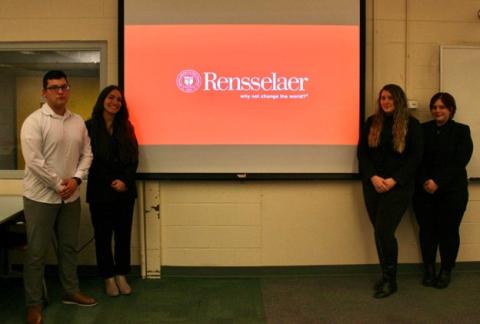Nuclear power plants currently operate at inefficient energy conversion rates, in terms of fuel burnup and thermal efficiency, when compared to other power generation technologies. The U.S. nuclear fleet generates approximately 800 TWh of electricity per year and 2,000 tons of used nuclear fuel, most of which is Uranium-238 (approximately 93%), for an average rate of 2.5 tons per TWh. This issue affects nuclear plant owners, U.S. citizens and the Department of Energy. Waste management has played a significant role in the design and operation of nuclear reactors, involving all stages of waste production. There are various approaches to improving the usage and disposal of fuel. The advancement in nuclear technology through Generation IV reactors supports the global shift towards sustainable and cleaner energy sources. By reducing waste through the optimization of fuel cycles, these reactors aim to enhance the economic feasibility of nuclear power. This transition is crucial for the long-term viability of the nuclear industry and is instrumental in addressing the challenges of waste management, energy security, and environmental protection in the nuclear energy sector.
Team: Maria Domingo, Zachary Nolter, Lauren Scotti, Jeri Stiklickas
Advisor: Dr. James Edward Olson

Members of the design group
Project Motivation
Nuclear power plants currently operate at inefficient energy conversion rates, in terms of fuel burnup and thermal efficiency, when compared to other power generation technologies. The U.S. nuclear fleet generates approximately 800 TWh of electricity per year and 2,000 tons of used nuclear fuel, most of which is Uranium-238 (approximately 93%), for an average rate of 2.5 tons per TWh. This issue affects nuclear plant owners, U.S. citizens and the Department of Energy. Waste management has played a significant role in the design and operation of nuclear reactors, involving all stages of waste production. There are various approaches to improving the usage and disposal of fuel. The advancement in nuclear technology through Generation IV reactors supports the global shift towards sustainable and cleaner energy sources. By reducing waste through the optimization of fuel cycles, these reactors aim to enhance the economic feasibility of nuclear power. This transition is crucial for the long-term viability of the nuclear industry and is instrumental in addressing the challenges of waste management, energy security, and environmental protection in the nuclear energy sector.

Horizontal and Vertical Cross Sections of OpenMC MSRE Core Design
Project Description
The first phase of the project was determining the waste-to-electricity ratio in Generation IV nuclear reactors. The waste-to-electricity ratio takes the inverse of the average burnup rate (MWd-kg) multiplied by the thermal efficiency (MWd). The MSR was found to have high values for both parameters, leading to the smallest (and therefore best) waste-to-electricity ratio out of the other Generation IV reactors that were explored, including the LFR, GFR, SCFR, VHTR, SCWR, and current LWR’s. The proposed design path was investigating the MSRE (Molten Salt Reactor Experiment, an MSR that ran in the 1960’s) and designing modifications that could reduce burnup and therefore optimize the waste-to-electricity ratio and maximize waste reduction potential. The two modifications that were explored were continuous off-gassing and improved refueling. These were simulated using OpenMC in order to model the design modifications as well as simulate the potential effects.

MSRE OpenMC Depletion Analysis of Applied Transfer Rates for Xe135, F18 Off-gassing and U235 Refueling
Results and Accomplishments
Through a combination of analytical proofs and simulation models, the team proposed viable design changes that would optimize the MSR's performance. This includes assessing the feasibility of various modifications, such as off-gassing systems and sample-enricher mechanisms, to improve the reactor's safety and efficiency in waste handling. Further analytical and simulation studies to refine the MSR design aim to enhance its efficiency and waste management capabilities. The ultimate goal is to contribute to the advancement of sustainable and efficient nuclear power generation by achieving an optimized waste-to-electricity ratio through innovative MSR designs.